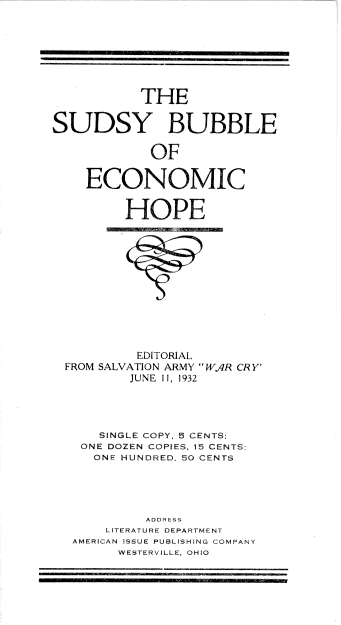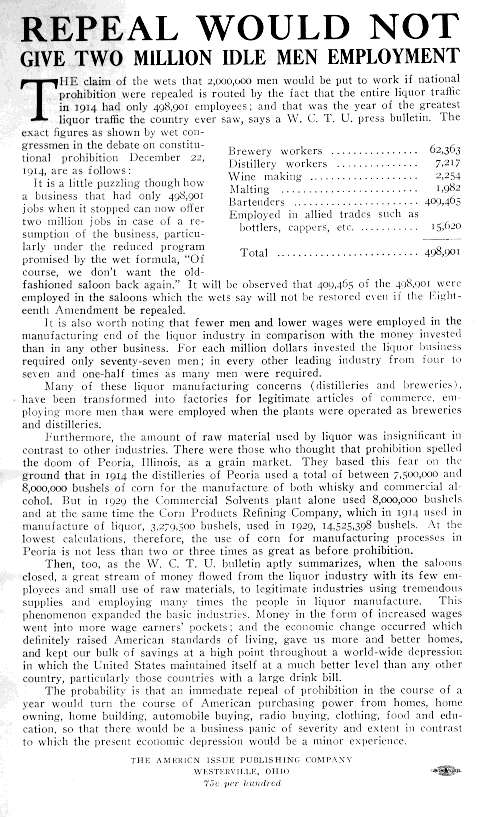The Unraveling of National Prohibition
A series of blows began to rain down on the League's head. Congress began an investigation of the League's financial records. Wayne Wheeler died abruptly leaving a huge vacuum in the League's Washington lobby. William H. Anderson, the New York League superintendent, was convicted of criminal activity in regard to League funds and sentenced to time in prison.
The League had expected money to continue rolling into its coffers after the 18th Amendment was passed. However, the churches and their constituencies viewed the battle as won and did not see the need for the same rate of giving as in the past. Wealthy backers, the Rockefellers and S.S. Kresge, unhappy with the tone of the enforcement policies of the League and the changing sentiment of the country, stopped contributions.
John D. Rockefeller Jr. went so far as to express his dissatisfaction publicly in a letter to the platform committee of the Republican Convention of 1932. He said, "many of our best citizens... have openly and unabashed(sic) disregarded the Eighteenth Amendment; that as an inevitable result respect for all law has been greatly lessened; that crime has increased to a unprecedented degree..."
The onset of the Great Depression turned the tide on the alcohol question much as World War I had a decade earlier. Cries for the employment and tax revenue opportunities provided by legal alcohol sales struck a chord with a citizenry weary from economic stress. The League still trying to hold its own attempted to refute the economic arguments for repeal of the 18th amendment to little avail. By 1932, both political parties had a repeal plank in their platforms and the end of the dry era in America was at hand.
One month after Franklin Delano Roosevelt's election as president of the United States, the 21st amendment to the constitution to repeal Prohibition was introduced in Congress. Only a year passed before the required 36 states ratified the repeal amendment. On December 5, 1933 the Prohibition experiment ended.
That afternoon on CBS radio, Howard Hyde Russell, 78-year-old founder of the League offered the League's response to this turn of events. He said, "This is no dry funeral; only a period of mistaken public opinion, warped and twisted by the conspiracy of a 'refuge of lies,' of false propaganda and political party duress... the question is What shall drys do next?... If we cannot get the whole loaf, we accept a half loaf, a slice, crust or crumb...".
About the League
Museum Hours
Monday-Saturday: 9am-6pm
Closed on Saturday: 1-2pm
Closed on Sunday










